Bernie Sanders 2020: Is US inequality the highest?
- Published
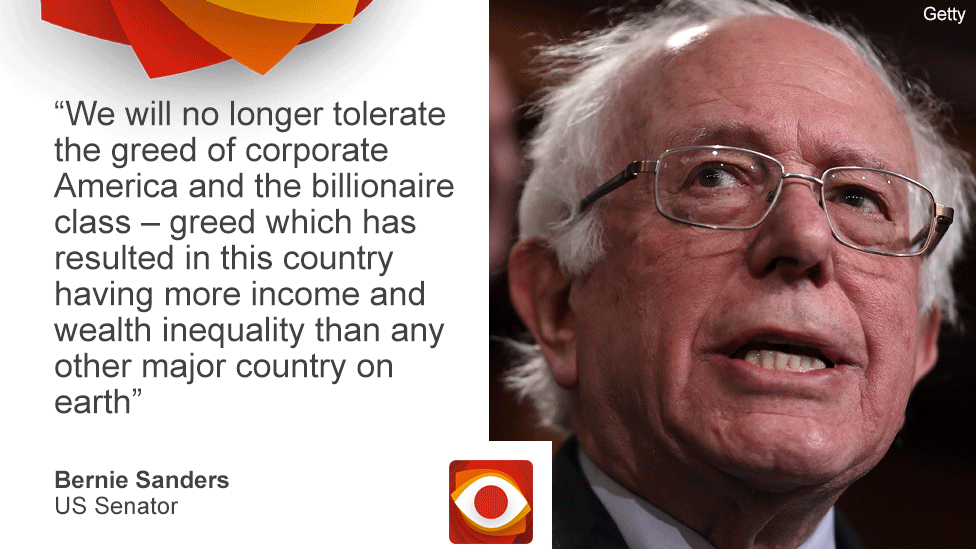
Claim: Inequality is higher in the US than any other major country.
Verdict: It's high but not the highest.

Bernie Sanders launched his presidential campaign by attacking the greed of corporate America and its billionaires. Greed, he said, "has resulted in this country having more income and wealth inequality than any other major country on Earth."
Is the left-wing senator right about inequality?
The US is certainly the richest country in the world and is creating more new millionaires than anyone else.
And ending "runaway" income inequality is also a key message of another prominent politician on the American left - congresswoman Alexandria Ocasio-Cortez.
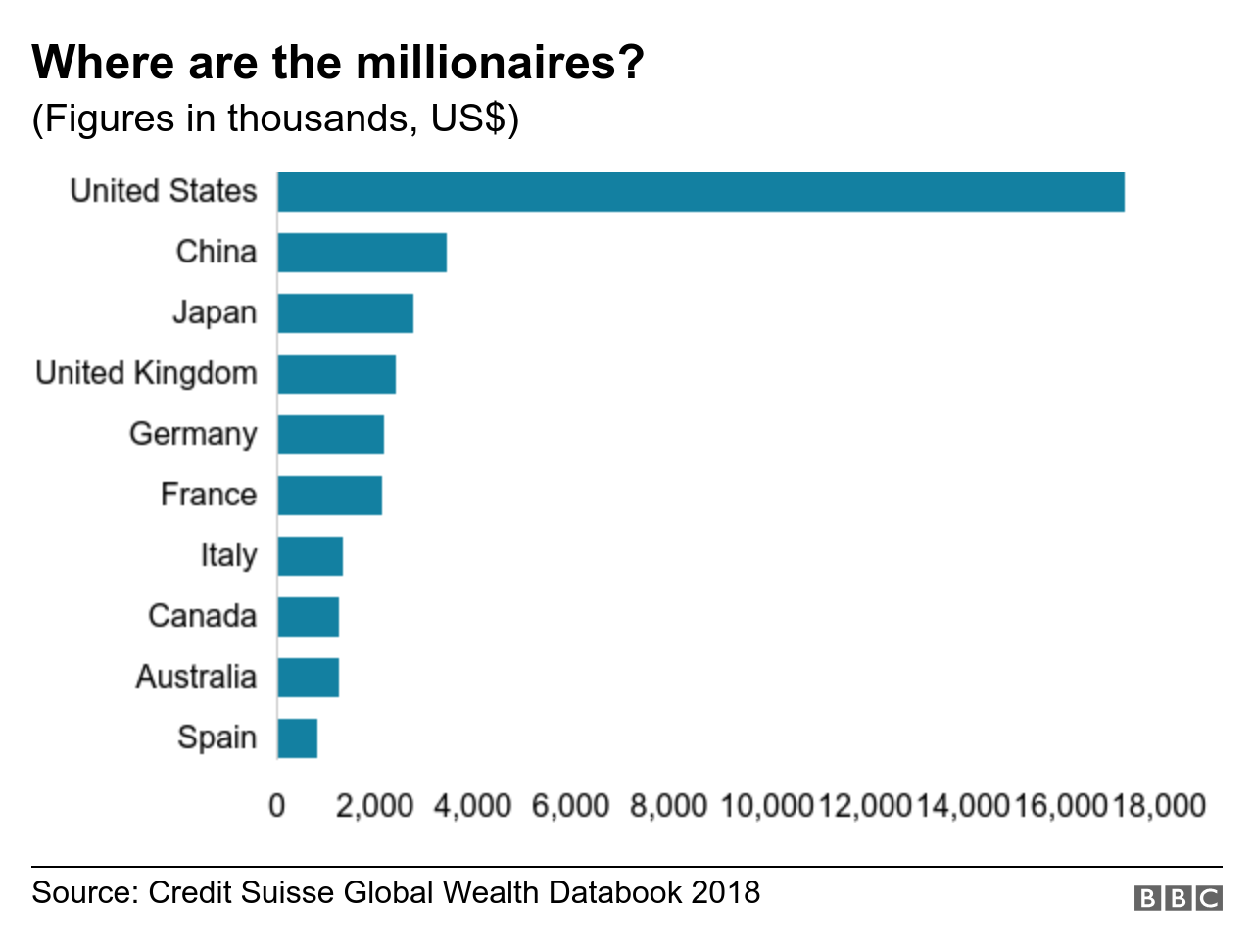
There are different ways of measuring inequality.
One of the most common methods is the Gini coefficient.
It gives countries a score between zero and 100. A score of zero means everyone earns the same amount. A higher score indicates a higher level of income inequality.
To address Mr Sanders's claim about "major" countries, we'll look first at the biggest developed economies - the G7 countries - plus Russia and China.
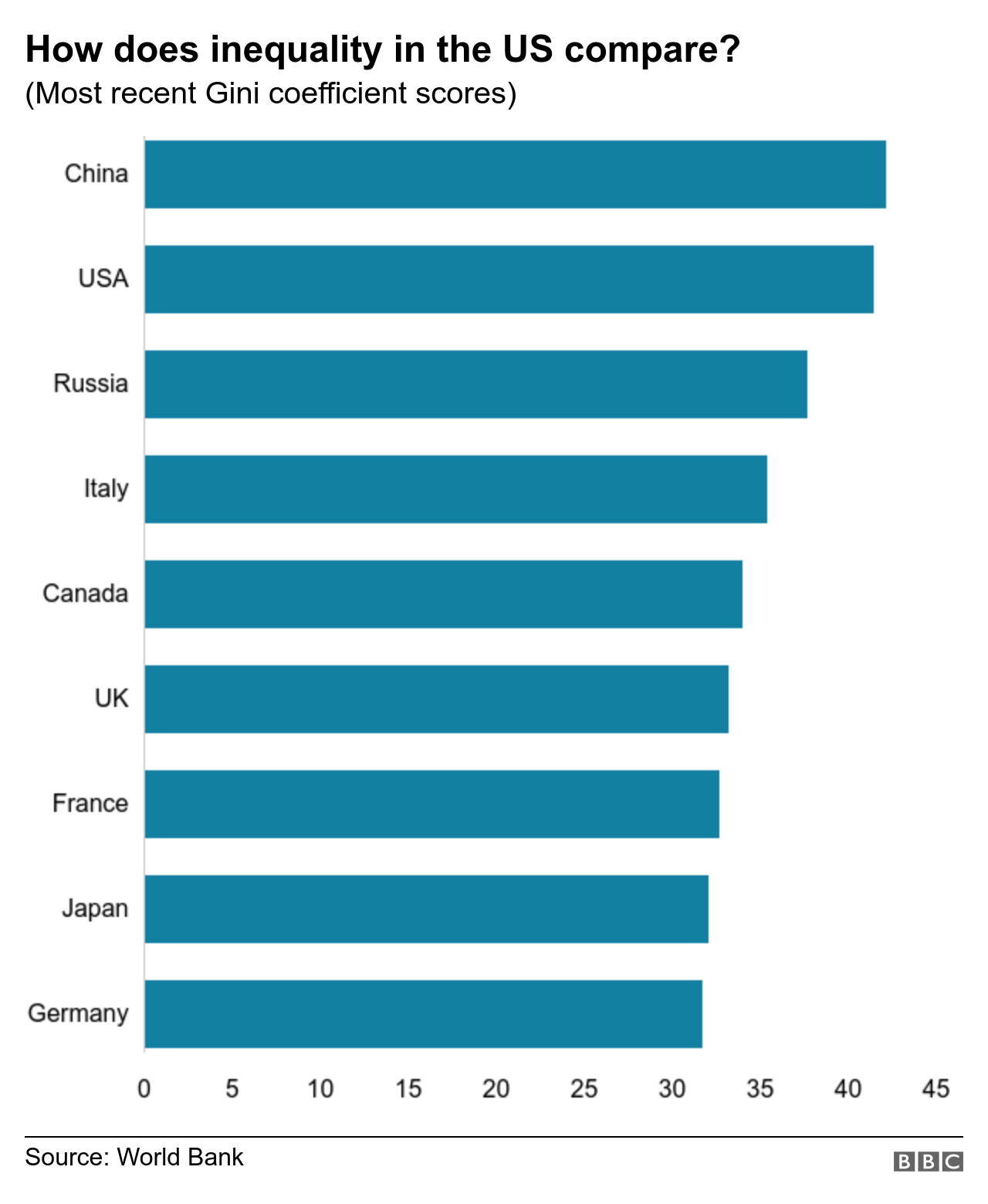

Out of these nations, the US's Gini score ranks it the second most unequal behind China, according to the World Bank.
This is based on the most recent available data, which varies between countries.
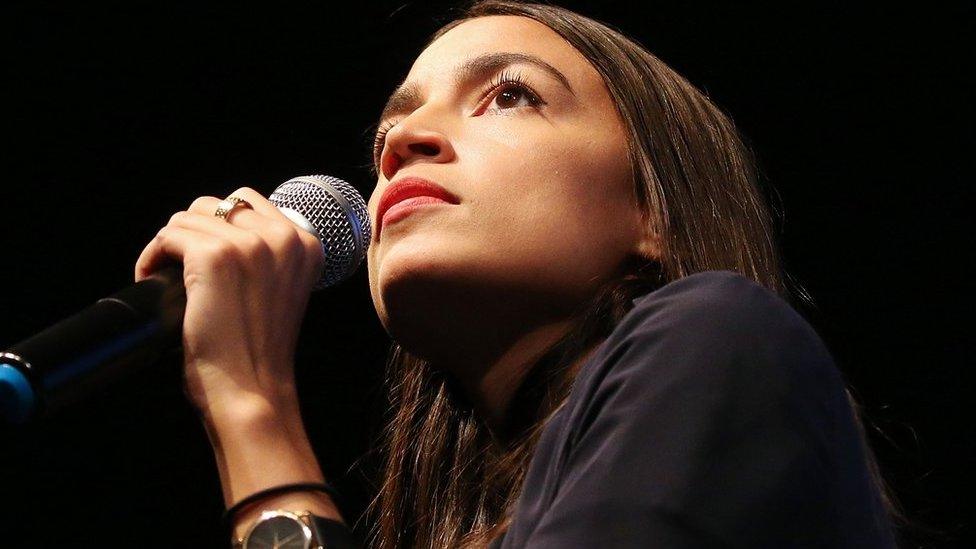
Alexandria Ocasio-Cortez has been vocal about wanting to put higher taxes on America's top earners
The bank gets its information from household surveys collected by government statistical agencies and its own country departments.
To look at a larger group of countries, out of the 35 members of the Organisation for Economic Co-operation and Development (OECD), the US's Gini score ranks fourth behind Mexico, Chile and Turkey respectively.
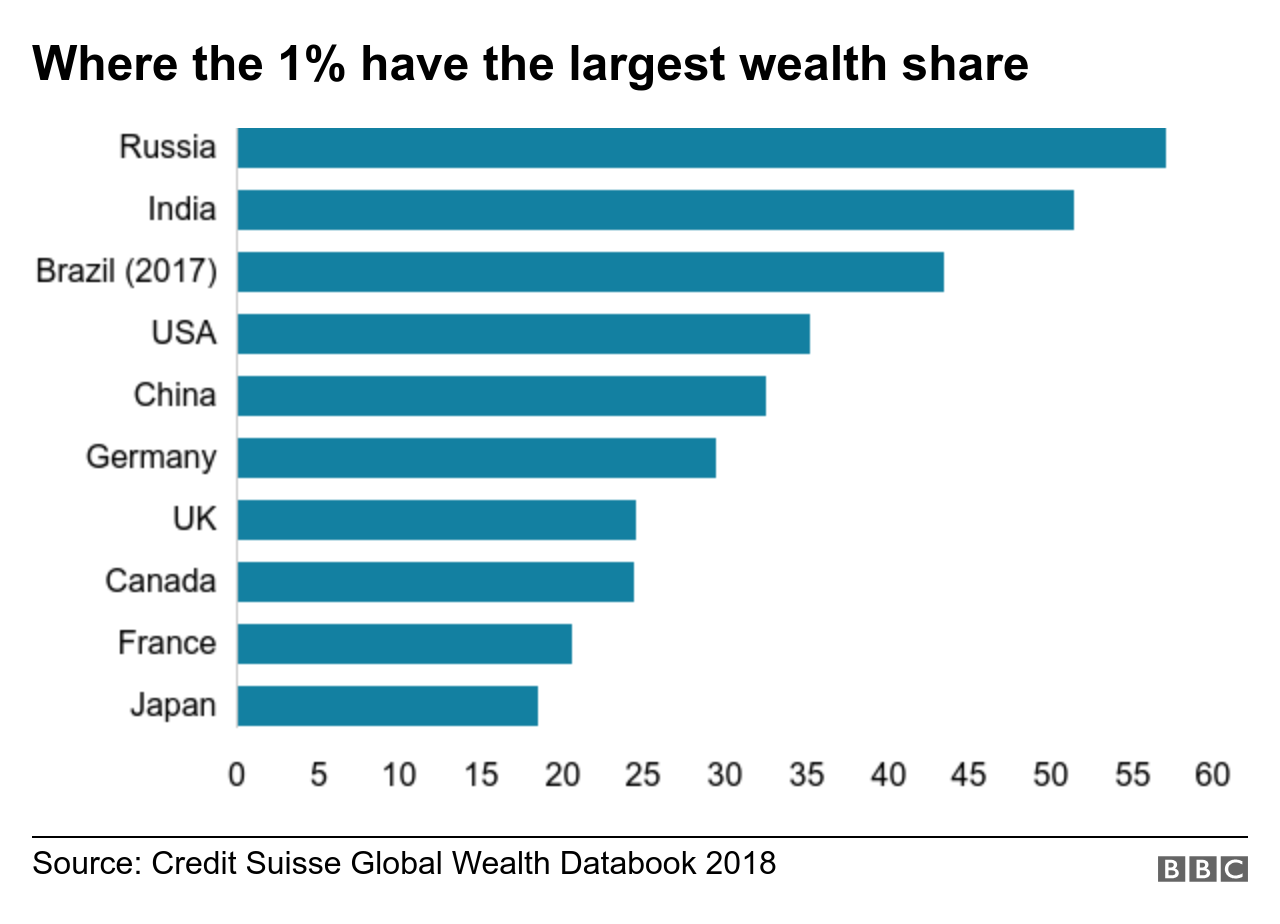
Inequality tends to be higher in developing countries. Latin America, the Caribbean and sub-Saharan Africa have historically had the highest levels.
What about the distribution of wealth?
Most of the world's wealth is in the hands of a small fraction of the population.
The world's richest 1% holds about the same proportion of global wealth now as it did at the start of the millennium, according to Credit Suisse's 2018 global wealth report, external.
Wealth inequality rose after the financial crisis in 2008 but has stopped rising in the past two years.
This raises the chance of more inclusive wealth growth in the future, says Credit Suisse.
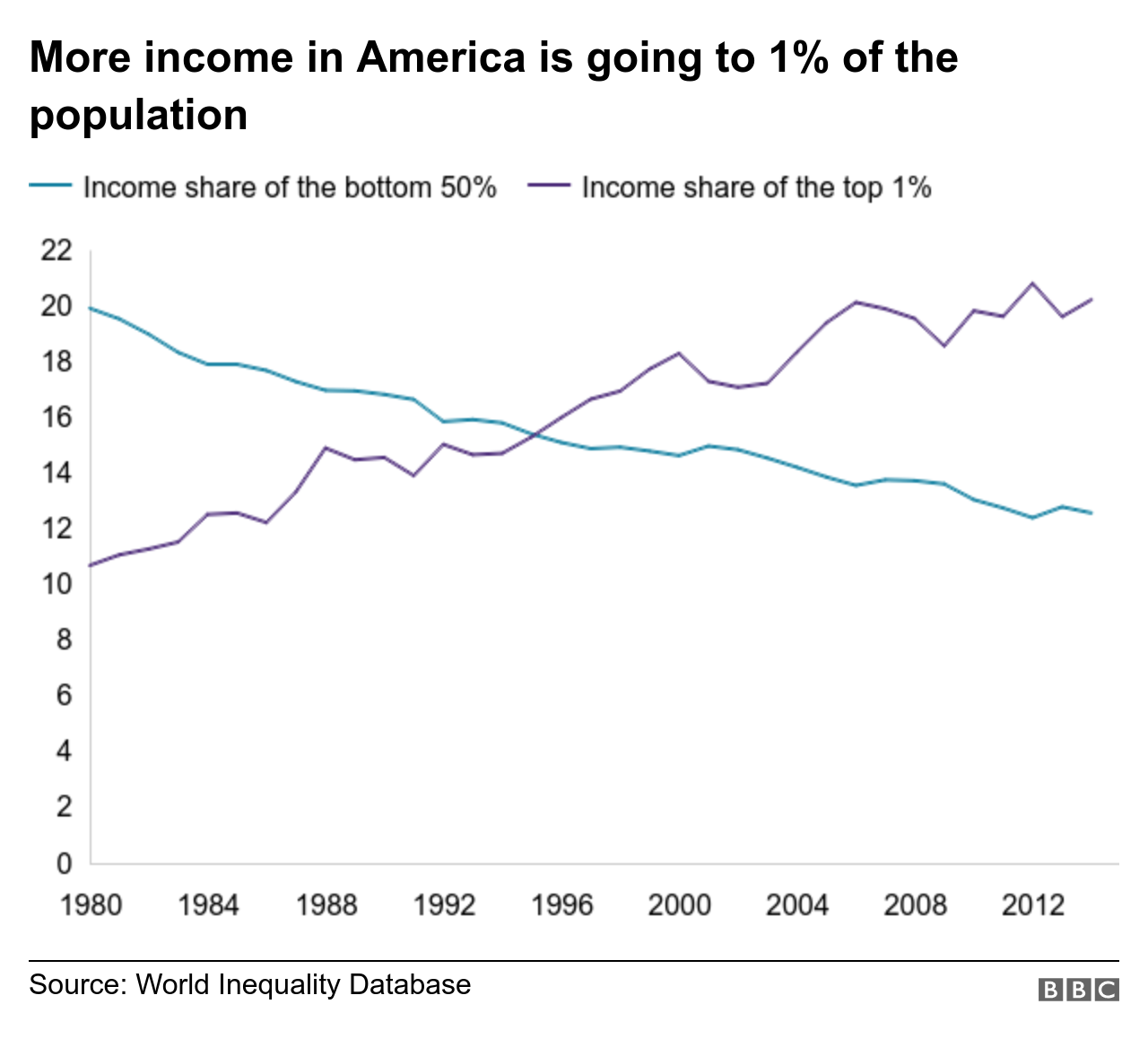
The proportion of wealth in the hands of the top 1% of American earners is high but not the highest.
Compared with other large economies selected in the report, the 1% hold more of the wealth in Brazil, Russia and India.
The income share of the top 1% in Russia grew sharply throughout the 1990s, overtaking richer countries such as the US, UK and France, according to analysis by the World Inequality Database.
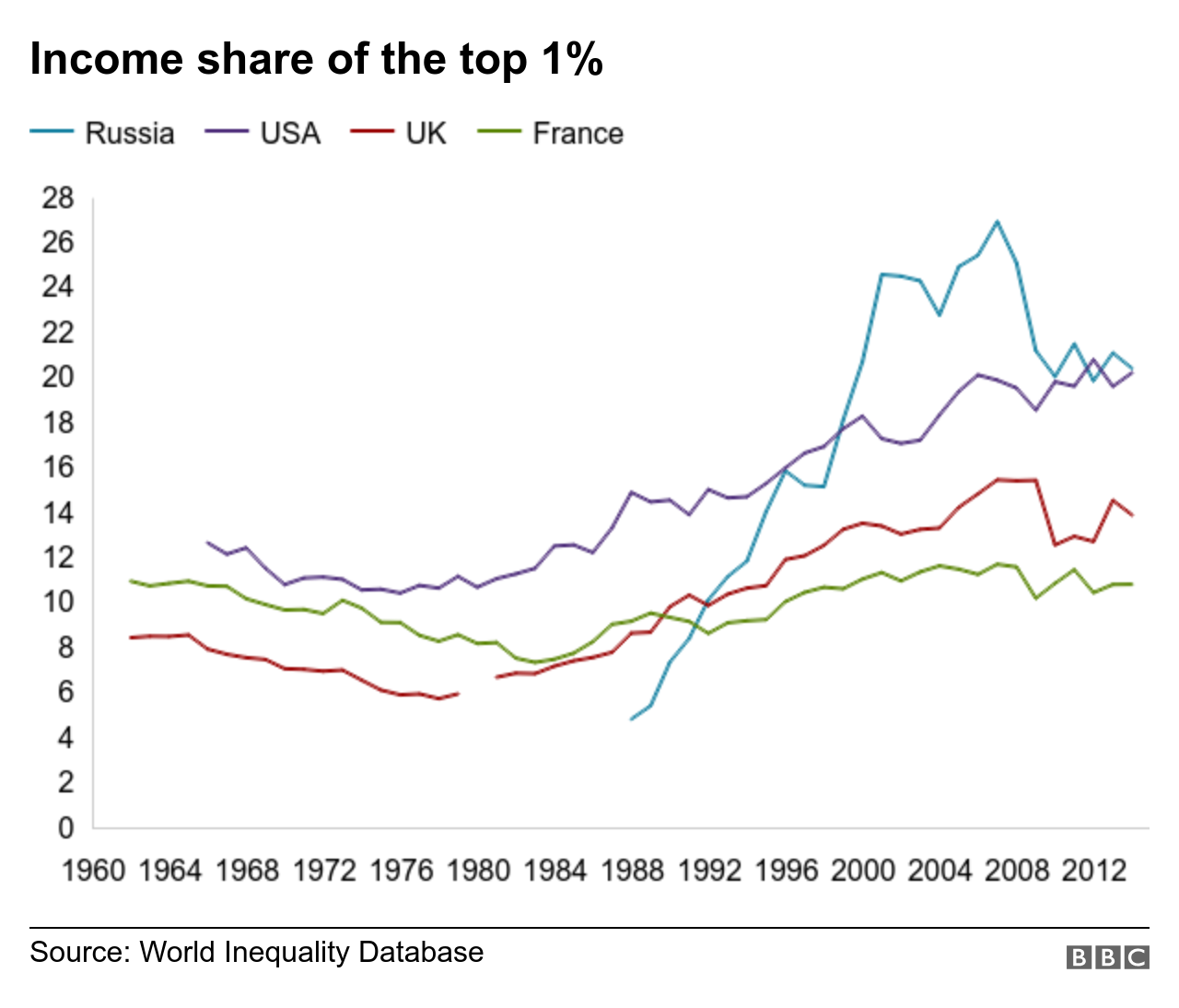
The Credit Suisse report shows that a similar pattern has emerged for the top 10% of earners, apart from in Italy, where that group's share went up in 2018.
Again, Russia tops this list, where the top 10% hold more than 80% of the nation's wealth.


- Published2 March 2019
